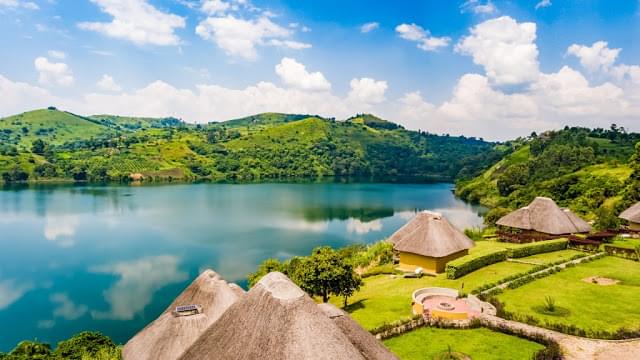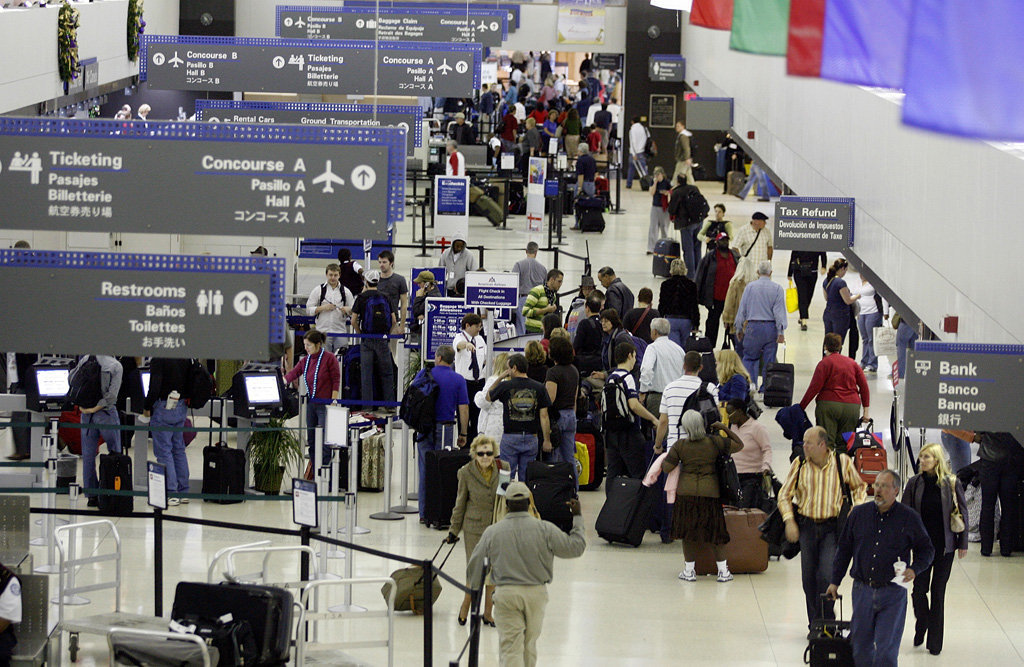As Covid continues to curb visits to see our iconic wildlife, now is the time to move away from western-led funding models.
That African governments have failed to mobilise funds to conserve their vast protected areas is not in doubt. Countries were just about managing to pay basic salaries to rangers who barely had enough to put fuel in their patrol vehicles. Covid has exacerbated this already dire situation, with the loss of income from foreign tourism.
The continent has more than 8,500 protected areas, described by the International Union for Conservation of Nature (IUCN) as government-led national parks, areas jointly governed by state agencies, communities, privately owned wildlife reserves, and public-private partnerships between governments, companies and NGOs. Included too, are what the IUCN calls “indigenous peoples and communities conserved territories and areas”.
East and southern Africa has about 5,000 protected areas, taking up 16.5% of the terrestrial area or more than 2m sq km. Protecting wildlife across such a vast swathe of land is a huge undertaking for African governments with competing priorities including infrastructure, healthcare, education and food security.
A 2018 study put the annual cost of managing 1 sq km of an unfenced area with lions at around $2,000 (£1,500), and $500 (£360) for 1 sq km of fenced-in area. However, an IUCN report in 2020 found most areas operate with less than $50 (£36). In Kenya, where the government tries to prioritise wildlife conservation, only 47% of the Kenya Wildlife Service’s budget was provided by the state in 2015.
Sadly, most government parks on the continent are “paper parks”, with not enough revenue to fund even basic policing. In Tanzania, 75% of revenue from its 14 national parks in 2013 came from just two, Kilimanjaro and Serengeti. In South Africa, nearly 80% of visitors to the national parks went to Table Mountain and Kruger from 2017 to 2018. Rwanda’s Volcanoes national park accounts for 38% of all visits and generates more than 90% of the revenue for the department managing the country’s wildlife. Of the 58 parks and reserves in Kenya, fewer than 10 bring in 85% of revenue for Kenya Wildlife Service. No wonder Africa is home to the largest ensemble of nongovernmental conservation bodies, many of them running on funds raised abroad.
Still, conservationists in the region feel that if governments fully appreciated the role played by protected areas, they would increase funding for conservation and reduce overreliance on donor-led conservation models. Fred Kumah, vice-president of the Nairobi-based African Wildlife Foundation, says governments must see parks as more than mere animal-holding grounds in order to achieve sustainable conservation. Africa’s protected areas, he says, are important sources of clean water and natural medicine, and act as natural air purifiers. Budget allocations, he says, ought to match the vital resources they provide.
But they don’t. An analysis of the 2020 statements presented simultaneously in four east African countries shows spending on conservation sectors such as tourism, wildlife and environment was 1.4% in Kenya; 1.7% in Uganda; 3.8% in Rwanda and 1% in Tanzania. Yet the sectors’ contribution to the GDP of these countries ranged from 5% to 11%. The $380m available to safeguard wildlife in protected areas across the continent is a drop in the ocean of what’s needed; it is estimated that $1–2bn is required to secure the protection of lions alone. Conservationists have linked poor funding to rising threats such as the poaching of bushmeat, ivory and rhino horn.
Are there conservation financing models that favour Africa? Kumah thinks they exist, but says they should be rooted in the continent. “Why should foreigners have more interest in assets that matter most to us?” Potential models include carbon offset programmes, with laws forcing polluters to buy carbon credits. Meanwhile, a UN development programme-backed initiative called the Lion’s Share, where commercial firms using animals in their branding and advertisements donate 0.5% of their marketing spend to conservation projects around the world, has already been set up.
Africans should not be forced to choose between conservation and development. Lack of resources for one will sound a death knell for the otherRecently, Kenya’s tourism minister, Najib Balala, suggested the country should adopt public-private partnerships to boost revenues from parks and reserves. His sentiments caused some ruckus and he was accused of trying to sell off Kenya’s parks. But Balala’s thinking was not without precedence in Kenya. The successful 20-year management of the Mara Triangle, a wildlife-rich enclave within Maasai Mara reserve by Mara Conservancy, has been run by a not-for-profit.
In 2010, NGO African Parks took over the management of Akagera national park – changing land once overgrazed with more than 30,000 cattle into an income-generating resource for people and wildlife. The park’s success stories include the reintroduction of lions in 2015 and black rhinos in 2017. African Parks manages 18 other reserves on the continent.
Kumah says such partnerships do not give away government control, while generating money and providing leadership. “You don’t kick your children out of the house just because you don’t have money,” he says. “But as a family head, you look for ways to support them.”
To wean African conservation from western-led models, conservation bodies have proposed a pan-African conservation trust fund of between $90bn and $225bn. More than 54 African governments are said to back the plan, says Kumah, and it is due to be launched in March next year at the first IUCN Africa protected areas congress in Kigali, Rwanda. Rather than compete with current financing models, proponents of the new fund say it will play a complimentary role by plugging gaps and widening sustainable resources.
It is a long shot that will take enormous political will. But the cost of not properly funding conservation is high. Countries allocate large sums to security, but, if more money could be set aside for conservation, sporadic insecurity driven by dwindling natural resources would reduce.
Africans should not be forced to choose between conservation and development. They are linked, and lack of resources for one will sound a death knell for the other. Covid was only a wakeup call. Africa needs to chart a clear path to conservation financing. Peter Muiruri is a Kenyan journalist specialising in travel, conservation and human interest stories … as you’re joining us today from Sweden, we have a small favour to ask. Tens of millions have placed their trust in the Guardian’s high-impact journalism since we started publishing 200 years ago, turning to us in moments of crisis, uncertainty, solidarity and hope. More than 1.5 million readers, from 180 countries, have recently taken the step to support us financially – keeping us open to all, and fiercely independent.
With no shareholders or billionaire owner, we can set our own agenda and provide trustworthy journalism that’s free from commercial and political influence, offering a counterweight to the spread of misinformation. When it’s never mattered more, we can investigate and challenge without fear or favour.
Unlike many others, Guardian journalism is available for everyone to read, regardless of what they can afford to pay. We do this because we believe in information equality. Greater numbers of people can keep track of global events, understand their impact on people and communities, and become inspired to take meaningful action.
We aim to offer readers a comprehensive, international perspective on critical events shaping our world – from the Black Lives Matter movement, to the new American administration, Brexit, and the world’s slow emergence from a global pandemic. We are committed to upholding our reputation for urgent, powerful reporting on the climate emergency, and made the decision to reject advertising from fossil fuel companies, divest from the oil and gas industries, and set a course to achieve net zero emissions by 2030.
The Writer is on behalf of the guardian is Peter Muiruri – a Kenyan journalist specialising in travel, conservation and human interest stories
About Guide2Uganda
Guide2Uganda (www.guide2uganda.ug) is the most comprehensive source of travel information about Uganda that exists on the web, with more content on its cities & towns, accommodation, attractions, events, museums and galleries than any other online guide that currently exists for Uganda; as well as being a dynamic travel news and events driven site with fresh content added daily.
According to WeFollow & Peer Index (that measure online influence), we are among the most influential online media organizations in Uganda. Guide2Uganda was also awarded ‘’Best Destination Website in Uganda’’ by Jumia Travel Uganda in the 2018 Africa Travel Awards.
Share your travel stories & photos with the world via email: info@guide2uganda.ug




